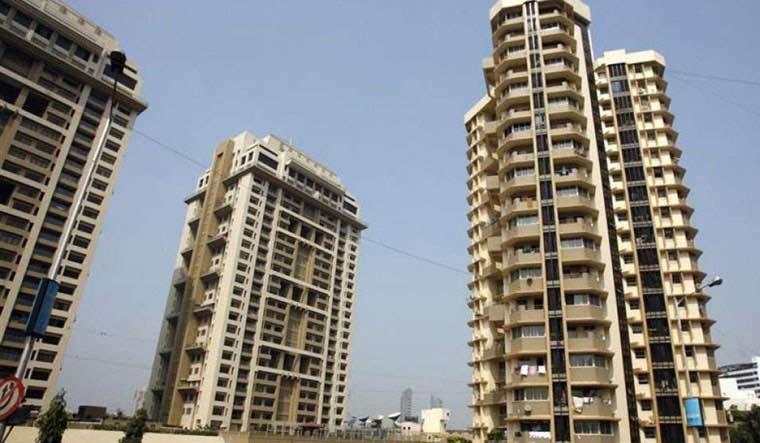Residental project launches across India's top seven cities declined 11 per cent in the first half of the year, even as sales picked up, as developers waited for general elections to get over, and instead looked to clear their unsold stock.
Launches in the rest of the year are also likely to be modest, according to a report released by Confederation of Indian Industry (CII) and real estate consulting firm JLL.
The residential real estate market in India has been through a long period of slowdown, following demonetisation and then uncertainties related to Goods and Services Tax (GST) and Real Estate (Regulation and Development) Act. Over the last one year, while sales have started to pick up, the developers still have a huge inventory of unsold apartments. Furthermore, developers are also facing difficulty in fund raising due to the stress in the non-banking financial services sector.
In this backdrop, 73,049 units were launched in the January-June this year, down 11 per cent year-on-year, the CII JLL report noted. "During H1 2019, due to the general elections, developers adopted a wait and watch approach and focused on clearing their unsold inventory. With the exception of Mumbai and Bengaluru, all other cities saw a dip in new launches," the report said.
In Mumbai, 28,723 new homes were launched in the first half of the year, a 58 per cent jump over the same period last year. Bengaluru saw 11 per cent rise in new launches at 18,273 units.
However, new launches tumbled 33 per cent in the Delhi-NCR region. In Pune, new launches declined 35 per cent, while 66 per cent fewer homes were launched in Kolkata. In Hyderabad and Chennai, too, new launches fell 51 per cent.
Over the last few years, affordable and mid-priced housing has picked up. In the first half, too, a sizeable supply of new homes was in the lower ticket size bracket. In Mumbai, for instance, half of the new homes launched were priced up to Rs 1 crore.
In other cities too, like Pune (91 per cent), Bengaluru (75 per cent) and Delhi NCR (33 per cent), most launches were priced up to Rs 75 lakh. The launches were mostly concentrated in the peripheral areas of cities, where land costs are lower and larger land parcels are available.
also read
- Lok Sabha polls: 2 CRPF personnel injured in Chattisgarh; BJP, TMC workers clash in West Bengal
- Lok Sabha polls: Intense fight as all key players have tasted success in these 8 seats in UP
- Lok Sabha polls: Why a former IAS officer and an advocate contestant calling EVMs undemocratic?
- Lok Sabha polls: MVA seals poll pact in Maharashtra, Congress to contest in 17 seats
Sales, meanwhile, picked up 22 per cent year-on-year in January-June at 78,247 units. Six of the top seven cities saw sales pick up. Only exception was Chennai, where sales fell 7 per cent.
In a country with a large youth population, JLL feels new asset class like co-living, catering to the rental housing needs of students as well as a millennial workforce, could drive housing growth in India in future. "The co-living market in the country is expected to grow at a compounded annual growth of 17 per cent over the next five years to touch nearly Rs 1 lakh crore," said Ramesh Nair, CEO and country head of JLL.
In 2018, realised demand (number of beds occupied by working professionals and students) for co-living spaces in the top seven cities stood at 94,000 beds. The supply of beds by organised players is expected to increase five times to 541,000 by 2023 from 108,000 now. Demand is also likely to rise to 470,000 beds by 2023, JLL notes.



